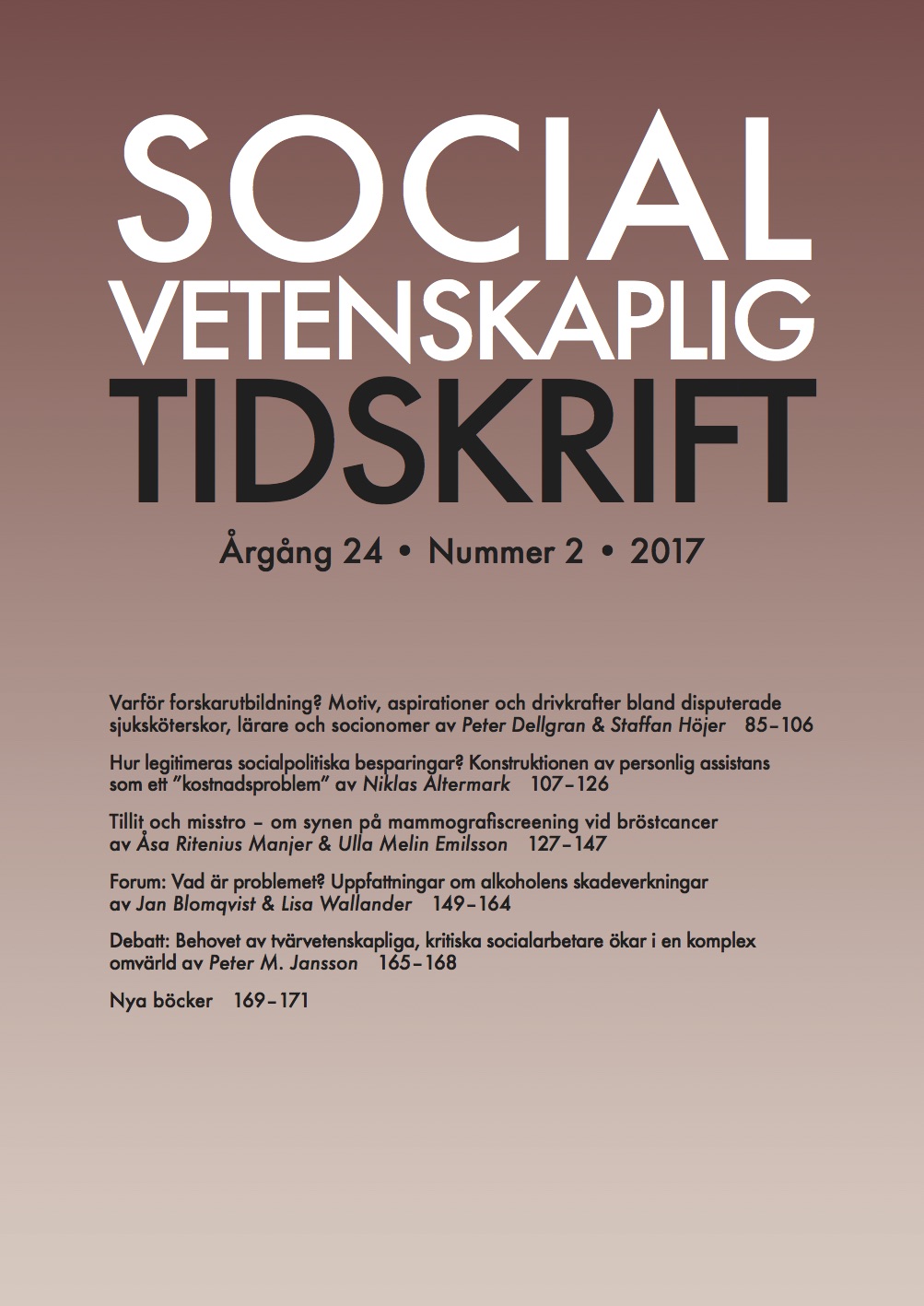Varfo?r forskarutbildning?
Motiv, aspirationer och drivkrafter bland disputerade sjuksko?terskor, la?rare och socionomer
DOI:
https://doi.org/10.3384/SVT.2017.24.2.2394Abstract
Why doctoral education? Motivational factors and aspirations among nurses, teach- ers and social workers
A significant feature of our knowledge-based society is the gradual academization and professionalization of a growing numbers of occupations. In Sweden, as in other countries, this academization has in several cases led to the establishment of profession-based university disciplines, with professors and PhD programmes, in order to develop and reinforce a scienti c base for profes- sional practice and education. A crucial element in this process is that professional practitioners are expected to seek admission to these doctoral programmes, and thereby choose a career as a researcher, and in varying degrees become involved in the continued development of scientific knowledge within their discipline.
This article is based on a survey with 749 respondents and the aim is to examine and compare motives and aspirations among nurses, teachers and social workers to undertake doctoral educa- tion. Over 90 per cent of the respondents have stayed in academia as teachers and researchers after their PhD. e results show that multiple motives are normal but that desire for personal growth and personal challenge dominates declared motives in all groups. However, social workers more often stresses political aspirations, while nurses and teachers more often highlight professional and practice-oriented motivation. Furthermore, motives also have some impact on the subject of the dissertation. Studies on patients and professional practice and methods are, for instance, more common among nurses compared to social workers, where research more frequently deals with organizations, social problems and social policy issues. Finally, some implications for research policy, and the continual debate about the gap between research and professional practice, are discussed.
Downloads
Published
How to Cite
Issue
Section
License
Allt material i Socialvetenskaplig tidskrift publiceras sedan 2022 (Vol 28 Nr 2) med omedelbar öppen tillgång (open access), under Creative Commons-licensen CC BY 4.0. Upphovsrätten till innehållet tillhör respektive författare.
Allt innehåll i tidskriften är fritt tillgängligt utan kostnad och får fritt läsas, laddas ned, kopieras, delas, skrivas ut och länkas. När innehållet används måste författare, källa och licens anges. Författaren kan fritt göra sin publicerade text tillgänglig på institutionella och internetbaserade arkiv, exempelvis sitt lärosätes digitala arkiv eller andra tjänster för detta.
Inga publiceringsavgifter tas ut vid publicering i Socialvetenskaplig tidskrift.


